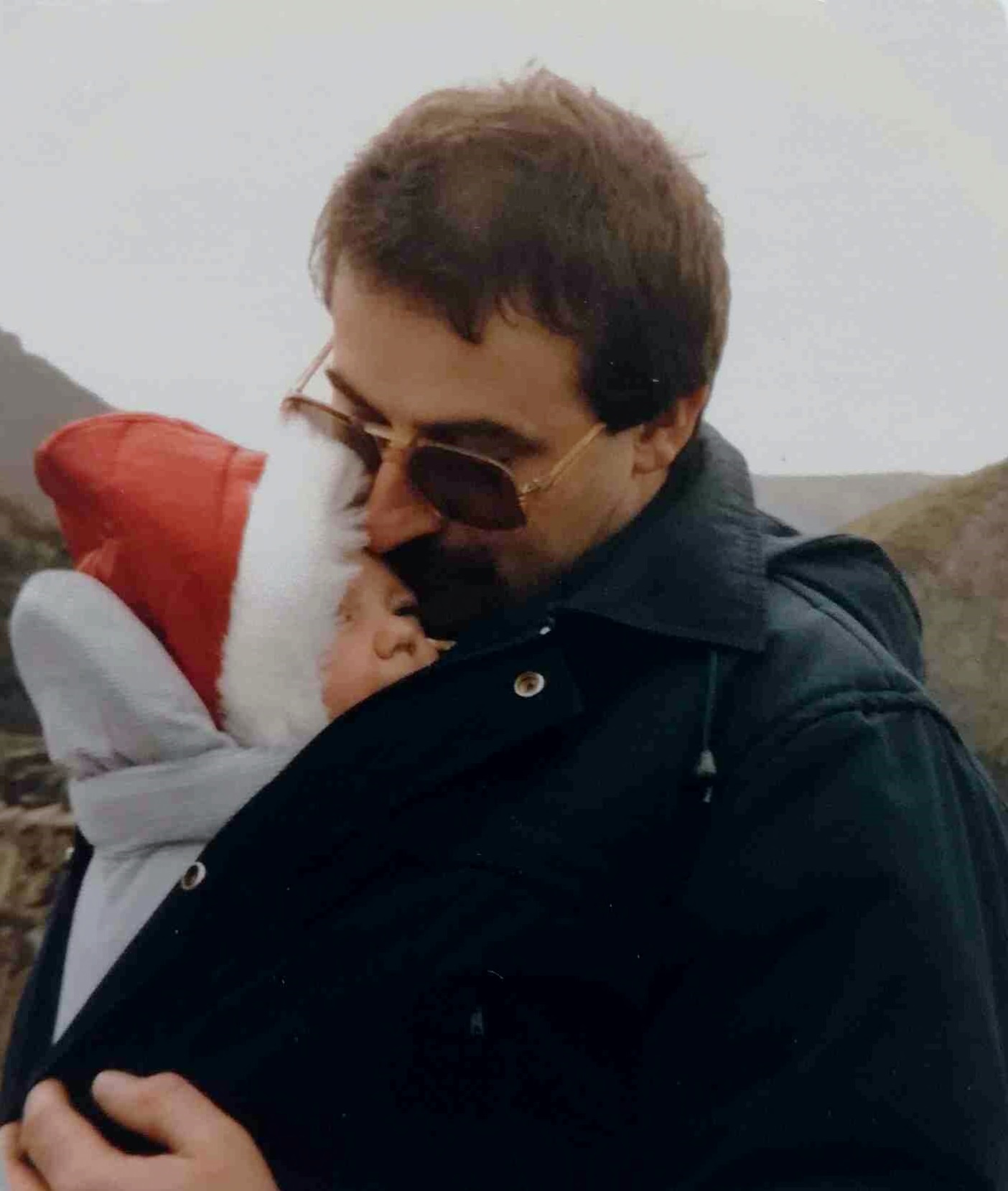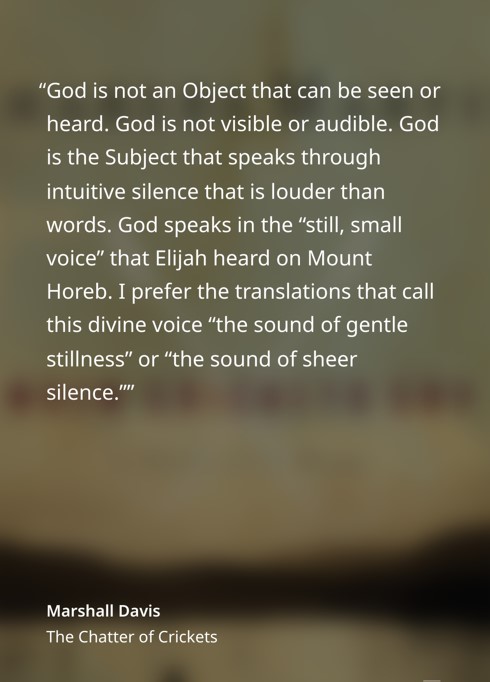The Loving Father
A Love That Will Not Let You Go

My daughter 35 years ago
The Loving Father - I Just Want To Be Loved
I had a loving father. I knew that I did, but I never felt it.
My father was a good man but very damaged and unable to show his feelings. So I grew up knowing in my head that I was loved, but not feeling it in my heart.
This is a common experience. Many of us, for one reason or another, grow up with little or no sense of a loving father and often we may not even realise the absence of the felt sense of that love until much later in life.
As a child I went through a period of idolising my father and in a way he was like a god to me, but always distant and never felt.
The love of a father has a special quality to it - a deep sense of comfort and all encompassing protection - a feeling of being taken care of, and a source of guidance, direction and inspiration.
Deep within all of us is a basic, primeval need to be loved, loved by someone, loved by anyone, just loved. This need to be loved has been the theme of countless songs, films and stories.
The late Freddie Mercury and Queen nailed it with "Somebody To Love":"I get down on my knees
And I start to pray
'Til the tears run down from my eyes
Lord, somebody, ooh somebody
(Please) can anybody find me somebody to love?"

Is This The Love That Dare Not Speak It's Name?
The Irish philosopher, priest, writer and broadcaster John O'Donohue expanded on this theme, of the universal need to be loved, to include consciousness.
He spoke of consciousness at the individual level and at the universal level which I refer to as the energy of life and Christians such as O'Donohue call God.
I am referencing him because he had a remarkable gift for putting into words experiences and concepts about consciousness that I do not have the language for.
Put simply he was a modern mystic - a "Zen Catholic priest" - who could articulate the unity of self and Self:
"There is an incredible loneliness in us for God.
We can have
everything else, friends, achievements, possessions and success, but if
we have closed off contact with God, something gnaws at us and the heart
can find no contentment.
Deep in every heart, this longing is alive.”
Many of us who are agnostic, atheist, of other faiths or no faith,
struggle with the idea of God because the word comes laden with so much
baggage.
Those of us within the Buddhist tradition may recoil from the apparent dualism of the traditional Christian presentation of God. Put simplistically: “big God up there” and “little sinful me down here”.
The idea of a loving God has become so marginalised and under the radar that it is has now become the love that dare not speak it's name.
I want to be old school and offer a different perspective that draws from the deep well of Christian experience of God and that expresses this experience as relationship.
One
of the unique features of the sayings of Jesus is his emphasis on the
relational aspect of God, his expression of God as Father – a loving
Father.
The Cloud Of Unknowing
In my experience a major stumbling block with the Christian approach to all this is its inherent reliance on a foundation of theological beliefs which you, as a believer, have to believe in. This is head before heart.
This traditional presentation of Christianity is essentially dualistic - as noted above, "Big God way up there" and "little sinful me all down here" - and the Buddhist non-belief in any personal god neatly side-steps all that.
But the apparent dualism within Christianity weakens and fades within the contemplative, meditative and mystical tradition.
Most of this was denied and aborted with the declaration of Gnosticism as heresy in about the 3rd century. However, fragments of the meditative tradition emerged in traditional Christianity around the 14th century as expressed in Evelyn Underhill's translation of the medieval spiritual guidebook called “The Cloud of Unknowing” which was written by an anonymous English monk.
The
underlying message of this work suggests that the way to know God as the loving father is to
drop all consideration of what is said and written about God, and to be
daring enough to surrender one's mind, drop the ego, and enter the
realm of "unknowing".
It is at this point that one may begin to experience the true nature of God as the loving father.
This has been described as Christianity with a Zen outlook.
I have shared at some length my experiences of what happens when you start to engage with consciousness via your higher self and how this takes place through your heart not your head.
This engagement is experienced, not thought, and is relational.
In my view, it is this personal and relational dimension that is a major strength of the Christian approach.
Buddhism focuses on the enlightened mind and Christianity reveals the awakened heart.
The Loving Father - A Love That Will Not Let You Go

In Deus Ex Machina I have set out a framework of 4 keys to working with the Energy Of Life [aka God or Consciousness].
I close this article and leave you with a working hypothesis and model of Consciousness, quoting from that article. This model is framed only for your heart.
As discussed in that article, we wear our beliefs lightly, as a guidance only, and not as immutable certainty.
"So please hear these words in your heart and not your head:
- I want to offer you a model that positions Consciousness in metaphorical terms as a loving father.
- I don't know about you, but my relationship with my own father was always distant, so this is a tough one for me, but please try it on for size and see how it makes your heart feel.
- Imagine that Consciousness knows everything about you, and always has your best interests at heart.
- Imagine a Consciousness that loves you more than you can ever know.
- Imagine a Consciousness that seeks deep relationship with you, deeper than any human relationship you have ever experienced or ever will.
- Imagine a Consciousness that knows your life purpose and that knows what you need before you ask.
- Imagine a Consciousness as your Loving Father."
Here is a document which is compiled from over 50 different verses drawn from all over the bible.
It is written in the voice of God as Father speaking directly to you his child:
Here is a love letter spoken directly to your heart.
Further Reading:
The Greatest Love - The Most Important Relationship You Will Ever Have
Next Article: Your Ebenezer Stone Of Help
Return from "The Loving Father" to: Walking The Talk
Or to: What Is Spirituality?
LATEST ARTICLES
The Kingdom Is Here, Now Awakening Is Not Later -
 What contemplative traditions point to - and how progress quietly replaces presence. Across contemplative traditions, a strikingly consistent message appears: truth is not somewhere else, not in the…
What contemplative traditions point to - and how progress quietly replaces presence. Across contemplative traditions, a strikingly consistent message appears: truth is not somewhere else, not in the…Does Prayer Work? The Psychology of Prayer, Meditation and Outcomes
 Reality Is A Complex System Of Countless Interactions - Including Yours. So does prayer work? The problem is that the question itself is usually framed in a way that guarantees confusion. We tend to a…
Reality Is A Complex System Of Countless Interactions - Including Yours. So does prayer work? The problem is that the question itself is usually framed in a way that guarantees confusion. We tend to a…Living in Survival Mode Without Surrendering Mental Authority
Living in Survival Mode Without Surrendering Mental Authority
 Clear Thinking When You’re Just Trying to Stay Afloat. Many people today are overwhelmed because they are living in survival mode - not temporarily, but as a persistent condition of life. For many, th…
Clear Thinking When You’re Just Trying to Stay Afloat. Many people today are overwhelmed because they are living in survival mode - not temporarily, but as a persistent condition of life. For many, th…Manifestation Without Magic: A Practical Model
 Manifestation without magic is not a softer or more intellectual version of popular manifestation culture. It is a different model altogether. Popular manifestation teachings tend to frame reality as…
Manifestation without magic is not a softer or more intellectual version of popular manifestation culture. It is a different model altogether. Popular manifestation teachings tend to frame reality as…Staying Committed When You Can't See Progress - The Psychology of Grit
 Uncertainty Is Not The Absence Of Progress, Only The Absence Of Reassurance. One of the most destabilising experiences in modern life is not failure, but uncertainty and staying committed when you can…
Uncertainty Is Not The Absence Of Progress, Only The Absence Of Reassurance. One of the most destabilising experiences in modern life is not failure, but uncertainty and staying committed when you can…The Battle For Your Mind - How To Win Inner Freedom In A Digital Age Of Distraction
 From External Events to Inner Events. We often think of “events” as things that happen out there: the traffic jam, the rude comment, the delayed email reply. But what truly shapes our experience is wh…
From External Events to Inner Events. We often think of “events” as things that happen out there: the traffic jam, the rude comment, the delayed email reply. But what truly shapes our experience is wh…How to See Your Thoughts Without Becoming the Story
 A Practical Guide to Thought-Awareness. You can spend your life inside the stories of your mind without ever learning how to see your thoughts clearly and objectively. Most of the stuff we tell oursel…
A Practical Guide to Thought-Awareness. You can spend your life inside the stories of your mind without ever learning how to see your thoughts clearly and objectively. Most of the stuff we tell oursel…The Collison Decision Matrix - A Simple Framework for Better Choices
 The Collison Decision Matrix Is A Practical Everyday Thinking Tool. Most of us spend a surprising amount of time worrying about decisions. From small ones such as what to wear, what to eat, what to te…
The Collison Decision Matrix Is A Practical Everyday Thinking Tool. Most of us spend a surprising amount of time worrying about decisions. From small ones such as what to wear, what to eat, what to te…The Power Of Asking The Right Question
 The Power Of Asking The Right Question Lies In The Quest For Insight. To experience the power of asking the right question you must develop the practice of asking questions. The best way to improve th…
The Power Of Asking The Right Question Lies In The Quest For Insight. To experience the power of asking the right question you must develop the practice of asking questions. The best way to improve th…Site Pathways
 Here is a site pathway to help new readers of Zen-Tools navigate the material on this site. Each pathway is based around one of the many key themes covered on this site and contain a 150 word introduc…
Here is a site pathway to help new readers of Zen-Tools navigate the material on this site. Each pathway is based around one of the many key themes covered on this site and contain a 150 word introduc…How To Live With Contradiction - Beyond Thought Let Stillness Speak
 A major impact on so many peoples' lives is the situational contradiction of unfilled realistic expectations. So where does all this leave us? Well here we are, with mental equipment that is more lim…
A major impact on so many peoples' lives is the situational contradiction of unfilled realistic expectations. So where does all this leave us? Well here we are, with mental equipment that is more lim…
